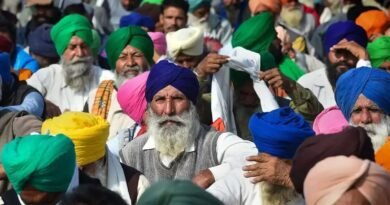Sedition Case Against Activist Aisha Sultana For Calling Lakshadweep Administrator Patel ‘Bio-Weapon’
THIRUVANANTHAPURAM: Lakshadweep police on Thursday registered a case of sedition against local resident and film activist Aisha Sultana for calling the Union Territory’s administrator, Praful K Patel, a bio-weapon being used by the Centre on the island’s people.
The case was registered at Kavaratti police station, based on a complaint from BJP’s Lakshadweep unit president C Abdul Khader Haji, under Section 124 A of IPC (sedition).
Khader’s complaint cited a recent debate on Malayalam channel ‘MediaOne TV’ on the ongoing controversial reforms in Lakshadweep, in which Aisha had purportedly said that the Centre was using Praful Patel as a ‘bio-weapon’ on the islands.
The remarks had sparked protests from the BJP’s Lakshadweep unit. BJP workers had moved complaints against Aisha in Kerala as well.
A film professional, Aisha has been in the forefront of campaigns against the reforms and proposed legislation, which have taken Lakshadweep and Kerala by storm.
“I had used the word bio-weapon in the TV channel debate,” Sultana wrote on Facebook, according to The Indian Express. “I have felt Patel as well as his policies [have acted] as a bio-weapon. It was through Patel and his entourage that Covid-19 spread in Lakshadweep. I have compared Patel as a bioweapon, not the government or the country…. You should understand. What else should I call him…”
Lakshadweep Sahitya Pravarthaka Sangam on Thursday extended support to Aisha.
“It is not proper to depict her as anti-national. She had reacted against the inhumane approach of the administrator. It was Patel’s interventions that made Lakshadweep a Covid-affected area. The cultural community in Lakshadweep would stand with her,’’ the organisation’s spokesperson, K Bahir, said.
While the UT Administration has said Patel’s controversial proposals are aimed at ensuring safety and well-being of residents along with promoting the islands as a tourist destination on par with Maldives, residents view them as ripping the social and cultural fabric of the islands.




